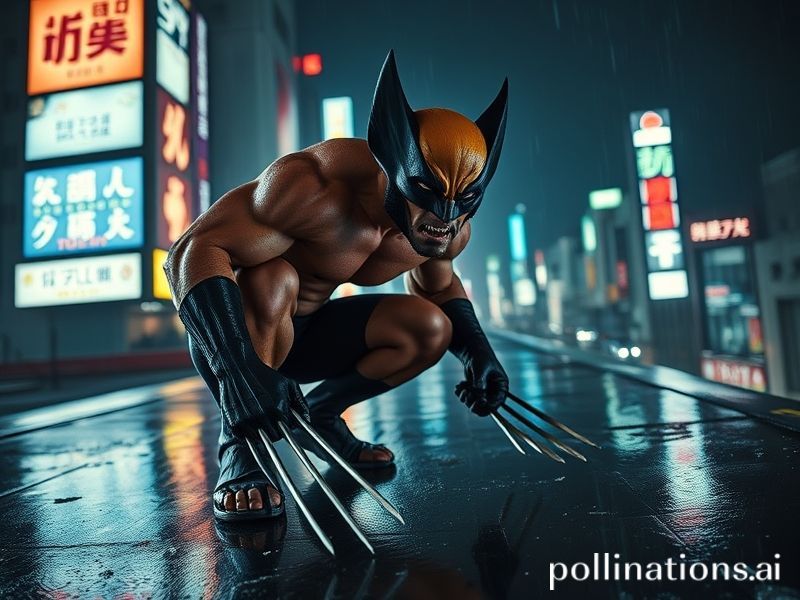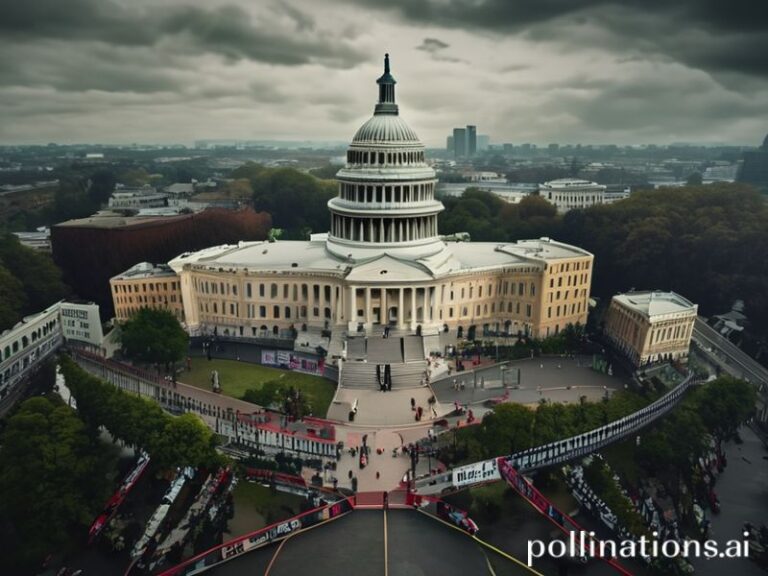Claws Across the Globe: How the Wolverine Game Became Planet Earth’s Group Therapy
Wolverine Game: How a Grumpy Canadian Became the World’s Favorite Therapy Mascot
The first trailer dropped at 3 a.m. in Helsinki, 9 p.m. in São Paulo, and during somebody’s lunch break in Ulaanbaatar—because in 2024, simultaneous planetary insomnia is the closest thing we have to a shared religion. Within minutes, #WolverineGame was trending from Lagos to Lahore, proving once again that global misery has an impeccable sense of timing and an even better agent.
Let’s be clear: the game itself is still mostly smoke, mirrors, and an ominous claw-scratch sound effect. Insomniac hasn’t even pinned a release date more precise than “when the polar bears file for unemployment.” Yet the mere promise of playing an angry, regenerating Canadian with anger-management issues has already done what decades of UNESCO peace conferences could not—unite humanity under one banner of gleeful, catholic bloodlust.
The appeal is, of course, deeply international. In Japan, Logan is marketed as the “ronin who never needs a manicure.” In Germany, pre-orders come with a steelbook that doubles as a bottle-opener—efficiency porn at its finest. Meanwhile, French critics have already started their annual ritual of calling anything American “too violent,” which is rich coming from the culture that invented the guillotine and cigarettes for children.
Watching the trailer frame-by-frame has become a cottage industry. Indian tech YouTubers zoom in on the adamantium grain structure like they’re performing a dowry negotiation. Brazilian funk artists sample the claw-snikt for beats that will inevitably be used at Carnival next to a float shaped like a giant beer can. Somewhere in Sweden, a doctoral student is writing a thesis titled “Logan as Post-Hegelian Praxis,” which will be read by three people and a depressed elk.
Geopolitically, the timing is exquisite. The planet has spent the last five years toggling between plague, inflation, and that special hobby where elected officials moonlight as amateur arsonists. Enter our hero: a man whose primary coping mechanism is stabbing problems until they apologize. It’s not subtle, but neither is reality TV diplomacy.
There is, naturally, the obligatory moral panic. British tabloids fret that Wolverine will encourage knife crime, conveniently ignoring the fact that the UK already hands out stab-vests like loyalty cards. American senators demand an investigation into “claw-based violence,” then adjourn to a fundraiser hosted by actual defense contractors. Somewhere in the Kremlin, an intern is photoshopping adamantium onto Putin’s vacation pictures—just in case shirtless horseback needs an upgrade.
Economists—those cheerful undertakers of optimism—predict the game could add 0.3 % to global GDP via merchandise, GPUs, and the inevitable spike in emergency-room visits from DIY claw experiments. Crypto bros have already minted “$SNKT” tokens; 48 hours later they’re down 94 %, proving that even imaginary adamantium can’t fix stupid.
But beneath the snark and the snikt lies something almost tender. In a world where passports are weapons and borders are mood swings, the fantasy of an indestructible outsider who still fights for the underdog feels… quaint. Logan doesn’t care about your visa status; he just wants to maim the bullies. It’s a child’s wish-fulfillment wrapped in an R-rating, and we’re all, apparently, very tired children.
So we queue, virtually and otherwise, for the privilege of pretending we can heal from anything. The planet keeps overheating, democracies keep hiccupping, and billionaires keep treating low-orbit as a timeshare. Yet for one fleeting downloadable moment, we’ll all be able to scream, pop claws, and imagine that the wounds—like the DLC—will eventually close.
And when the servers crash at launch, as they inevitably will, humanity will do what it always does: blame Canada.







